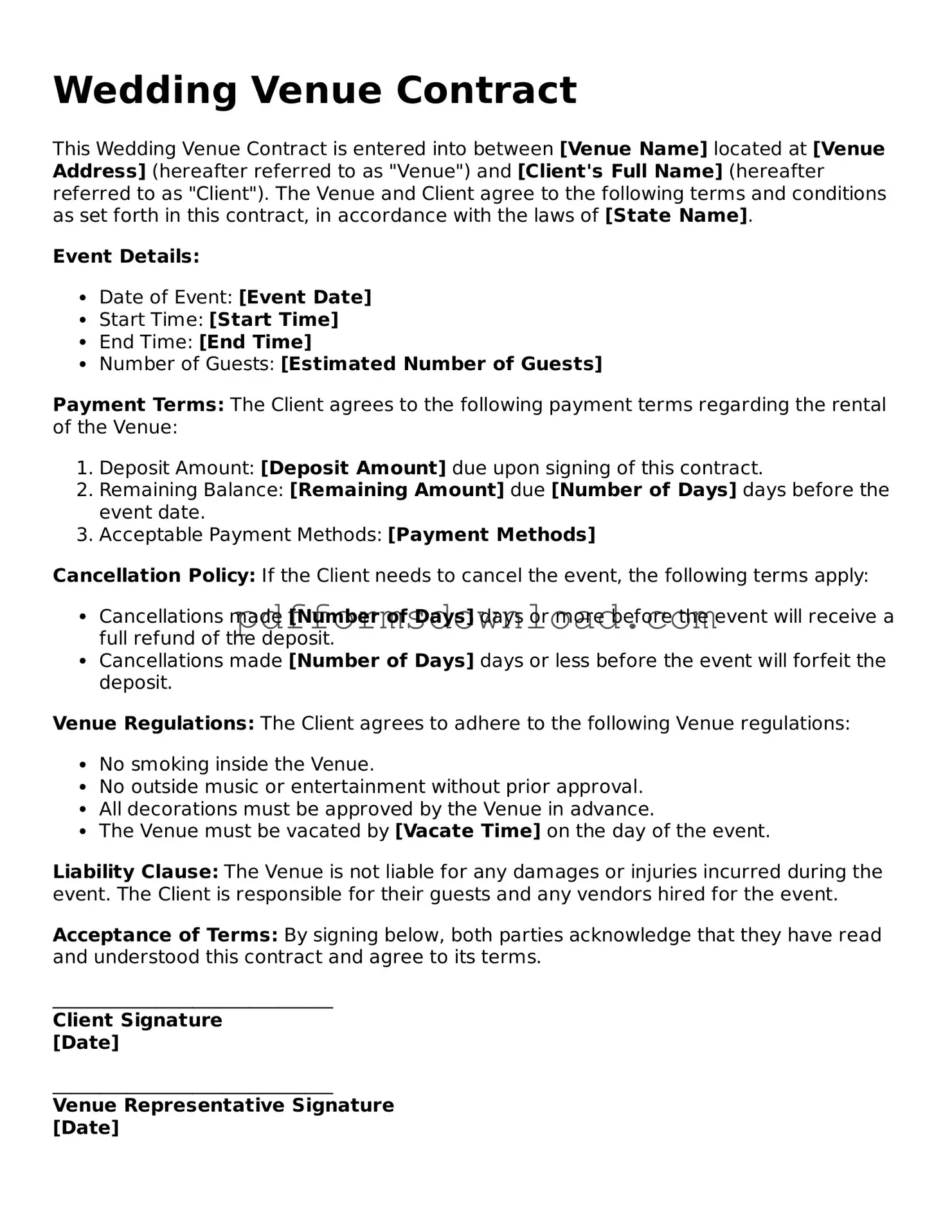What is a Wedding Venue Contract?
A Wedding Venue Contract is a legal agreement between a couple and a venue that outlines the terms and conditions for hosting a wedding. This contract typically includes details such as the date of the event, rental fees, payment schedules, and any specific rules or restrictions imposed by the venue. It serves to protect both parties by clearly defining their responsibilities and expectations.
Why is it important to have a Wedding Venue Contract?
Having a Wedding Venue Contract is crucial because it provides a formal record of the agreement. This document helps prevent misunderstandings and disputes by ensuring that both the couple and the venue are on the same page regarding the details of the event. In the event of any issues, the contract can serve as a reference point to resolve conflicts.
What key details should be included in the contract?
The contract should include essential information such as the venue's name and address, the event date and time, the total rental fee, deposit requirements, cancellation policies, and any additional services provided by the venue. It’s also important to outline any restrictions, such as noise limits or decor guidelines, to avoid surprises on the wedding day.
What happens if I need to cancel or reschedule my wedding?
If you need to cancel or reschedule, the contract will typically outline the policies regarding these situations. Many venues have specific cancellation terms, which may include deadlines for refunds or penalties. It’s essential to review this section carefully to understand your options and any financial implications before making a decision.
Can I negotiate the terms of the contract?
Yes, many venues are open to negotiation. It’s common for couples to discuss specific terms such as pricing, payment plans, and additional services. When negotiating, be clear about your needs and budget. A good venue will work with you to reach a mutually beneficial agreement.
What should I do if I have questions after signing the contract?
If questions arise after signing, reach out to the venue as soon as possible. Open communication is key. Most venues appreciate proactive inquiries and will be happy to clarify any details or address concerns. Keeping a record of all correspondence can also be helpful for future reference.
Is it advisable to have a lawyer review the contract?
While it’s not mandatory, having a lawyer review the contract can be a wise decision. A legal professional can help ensure that the terms are fair and that you understand your rights and obligations. This step can provide peace of mind and help protect your interests as you plan your special day.

